How to Cool Down When You’re Always Hot


Dress Lightly
It’s not just the amount of clothes that matter, but the type as well. Lightweight, loose-fitting, absorbent materials like cotton work best. Keep it to one layer. And look for lighter colors because darker ones can absorb the heat and make you hotter.
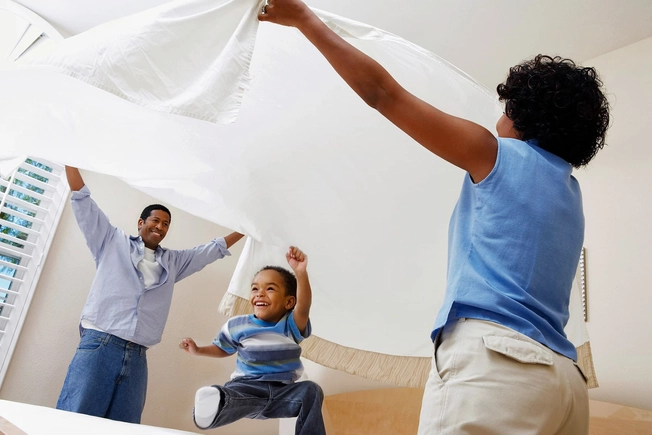
Choose the Right Bedding
Start with the right material for your sheets: Cotton or linen is best to let enough air in, keep you cool, and wick away sweat. Polyester/cotton blends won’t keep you as cool and dry. After that, look for a “thread count” of 200 to 400. More than that means the fabric won’t breathe as well and might trap more heat and moisture.
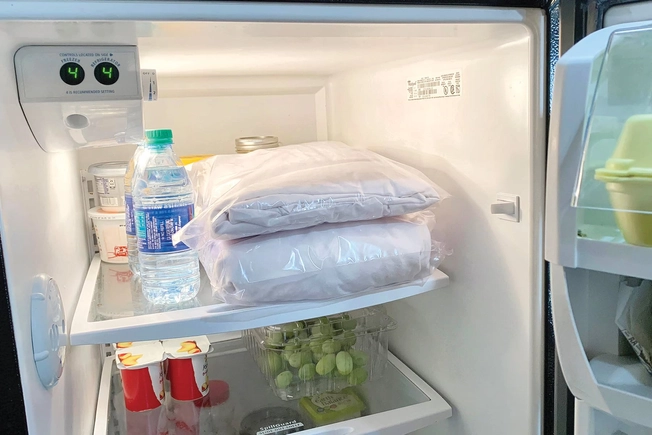
Chill Your Sheets
Just stick them in the freezer for a few minutes and then put them back onto your bed. If that’s too cold, you could put them in the fridge instead. Use a resealable plastic bag so they don’t touch food, moisture, or ice. The chill won’t remain all night, but it may last long enough for you to fall asleep.
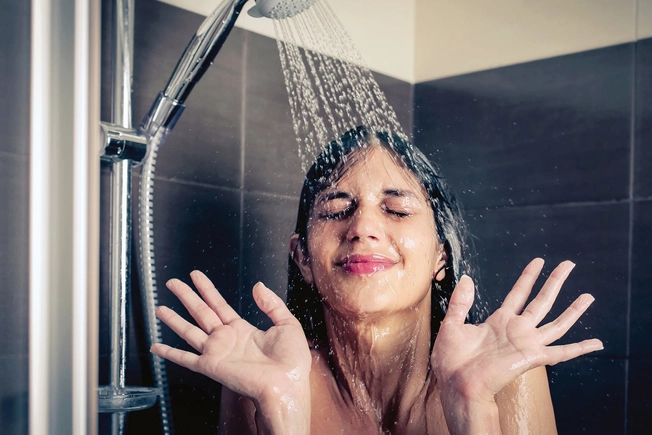
Take a Cool Shower
A bath or even a simple sponging off with cold water will work, too. It should help cool your body. And warm water also works because you cool down as the water evaporates from your skin and hair. But try not to steam up the bathroom too much. That could make things worse.
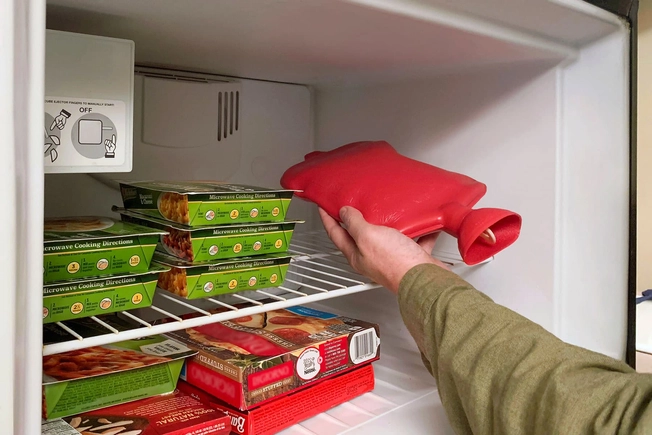
Frozen (Hot) Water Bottle
Do you take a “hot water bottle” to bed to warm up in the winter? Well, you can also use it to cool down. Just fill it with water and put it in the freezer. You may need to wrap it in a towel to protect your skin before you use it. You also could toss any buckwheat packs/pillows that you normally use to heat up in colder months into the refrigerator or freezer.
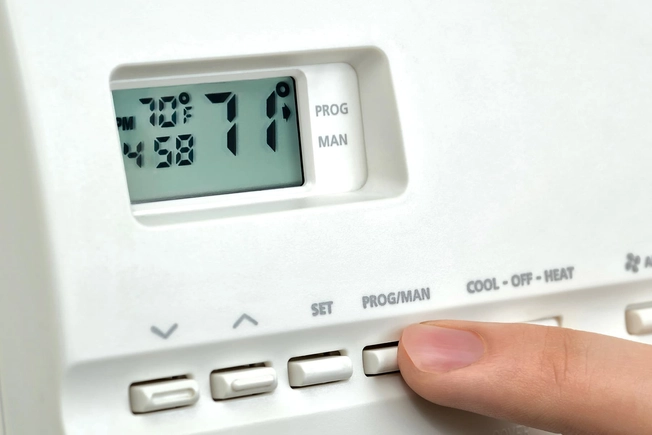
Move the Air
Air conditioning is your best bet if you have it. When you feel hot, simply turn the temperature down. If that’s not an option, you can get the air moving with a fan or two or three. Create a path for the air through open windows. For an even bigger cooling boost, put an oven roasting pan full of ice cubes in front of the fan.
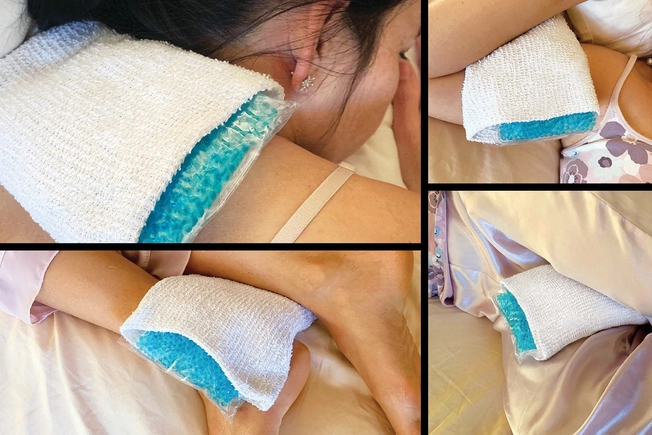
Ice It Down
If you’re really hot, you could use an ice pack. Or wet a towel with cold water and put it on “pulse points” like your wrists, ankles, the crooks of your elbows, and the backs of your knees. Just be sure to cover your skin with a towel to protect it, and only do it for 20 minutes at a time.
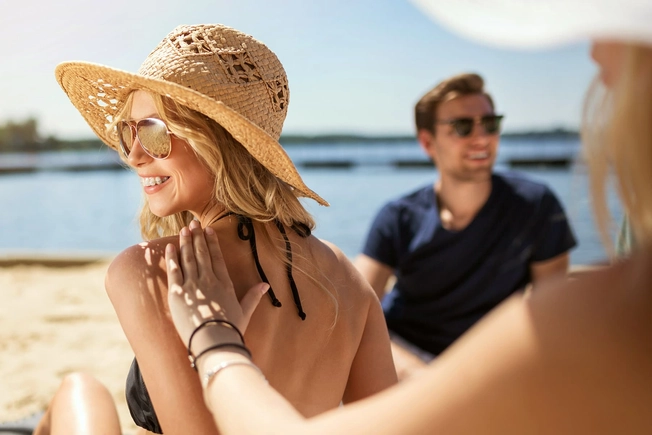
Wear Sunscreen
A sunburn can dehydrate you and make it harder for your body to cool itself. Wear a wide-brimmed hat and sunglasses when you’re outside, especially in direct sun. And cover any exposed skin with sunscreen. Put on SPF 30 or higher about 30 minutes before you go outside. If you stay outdoors, you’ll need to reapply it throughout the day.
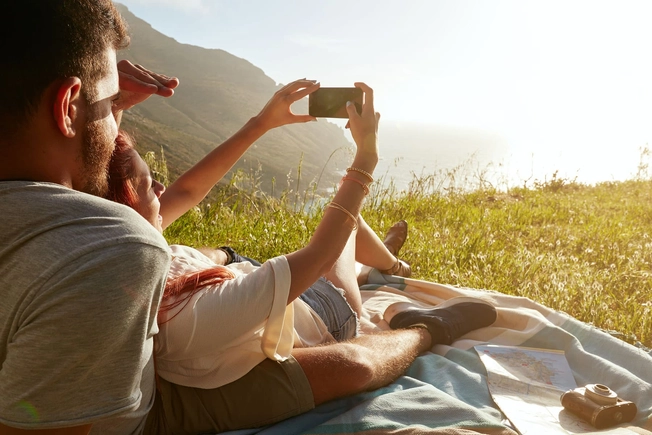
Ease Into It
If you suddenly find yourself in a new place that’s much hotter than you’re used to, don’t rush into lots of activity, especially outdoor exercise. Slowly add more activity over 2 weeks to get used to it. If you feel faint, lie down and raise your legs above your head. Try to get to a cool area and drink fluids as soon as possible.

Watch the Caffeine
That’s the “stimulant” in your morning cup of coffee that fires you up and gets you out the door. It’s pretty safe for most people, but it can raise your body temperature. That might not be good if you already feel hot. And it’s not just in coffee. It's also in chocolate, tea, sodas, sports drinks, and many nonprescription drugs. Read the packaging to know for sure.

Skip the Booze
An ice-cold beer or cocktail might seem like just the thing if you’re baking in the heat. But the alcohol can make you feel even warmer while actually cooling your core temperature. This is not a good combination and may make you nauseous and dizzy if you’re already hot. And if you drink too much, you might upset your body’s hormones, which sometimes spikes body temperature for short periods known as “hot flashes.”
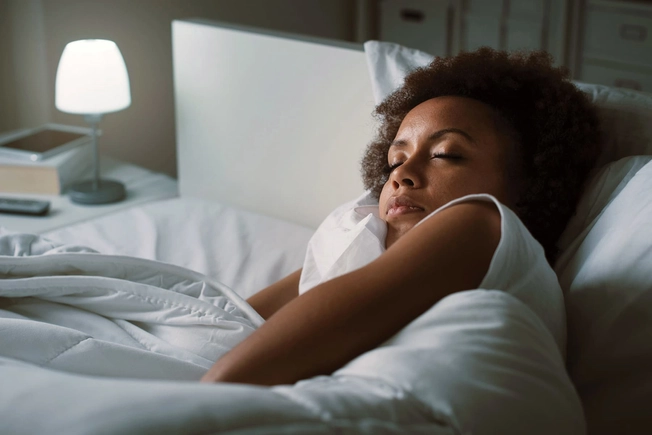
Change Beds
In the winter, a sleeping partner can help keep you warm. But if you’re struggling with the heat in the summer, you might consider your own bed. You could even look for a cooler room that’s lower down in the house or that has more windows. Though you may miss your sleeping partner, you’ll be in better spirits the next day after a good, cool, night’s sleep.
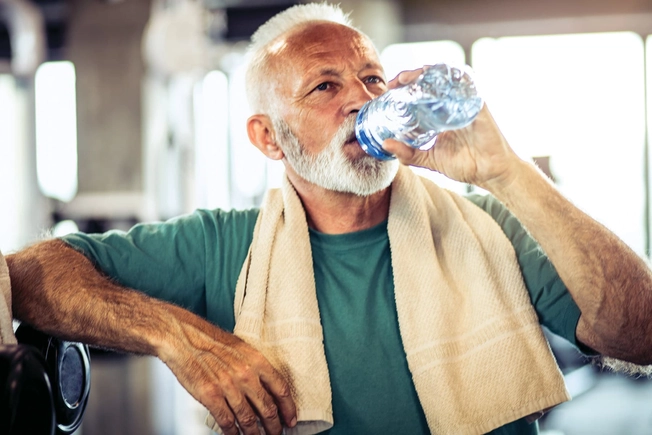
Drink Water
Sweating is your body’s air conditioner, and it needs water to run properly. It’s really important for sports. Top off your tank with a couple of cups a few hours before you head out for exercise. Bring a water bottle with you to games or practices, and try to take about 10 big gulps from your water bottle every 15 minutes or so. Remember, you might not see the sweat you lose if you’re in the pool or air conditioning.